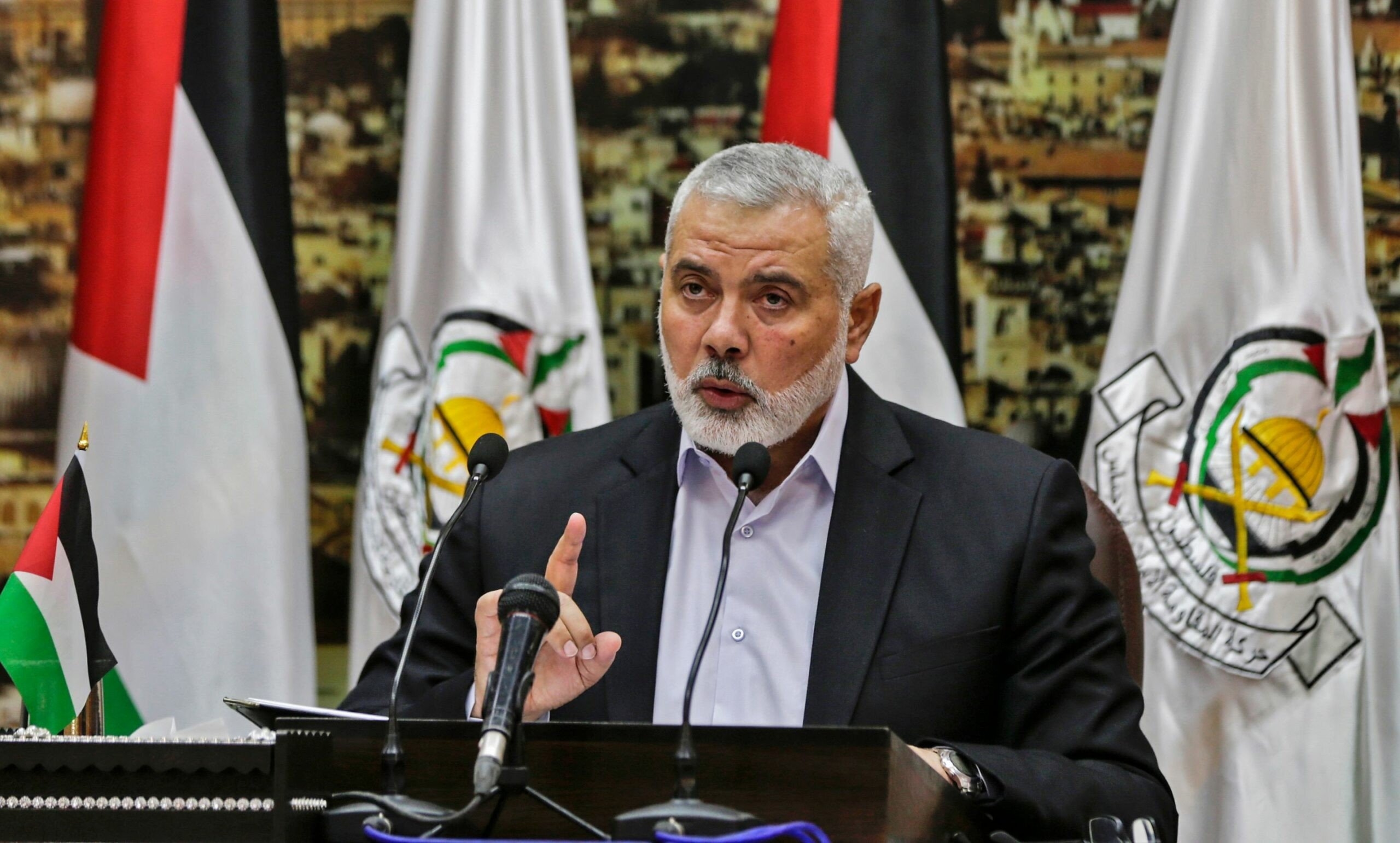The killing of Haniyeh is expected to further hinder efforts aimed at reaching a ceasefire as escalations between Israel and Hezbollah in Lebanon increase.
Qatar has strongly condemned the assassination of Hamas political chief Ismail Haniyeh on Wednesday, describing it as “a henious crime, a dangerous escalation and a blatant violation of international and humanitarian law.”
“The Ministry of Foreign Affairs confirms that this assassination and the reckless Israeli behaviour in continuing to target civilians in Gaza would lead to the region sliding into a cycle of chaos and undermine the chances for peace,” the Qatari foreign ministry said in a statement.
The statement renewed “Qatar’s firm position in rejecting violence, terrorism and criminal acts, including political assassinations, regardless of the motives and reasons.”
“The Ministry expresses the condolences of the leadership and people of the State of Qatar to the families of the head of the political bureau of the Hamas movement and his personal companion, and to the State of Palestine and its brotherly people,” the statement added.
Haniyeh, who has been exiled in Doha since 2019, was killed in an Israeli airstrike in Tehran, where he attended the inauguration of Iranian President Masoud Pezeshkian on Tuesday.
Hamas confirmed Haniyeh’s assassination in a statement on Wednesday morning, where it said he “was killed in a treacherous Zionist raid on his residence in Tehran.”
Iran’s paramilitary Islamic Revolution Guards Corps (IRGC) also confirmed the assassination of Haniyeh, saying it will release further details on the attack later.
Other countries that have so far condemned the killing of the top Hamas official include Iran, Türkiye, Russia, China, Lebanon, Jordan, and Afghanistan.
The assassination of Haniyeh came amid rising regional escalations that were triggered by Israel’s genocidal war in the Gaza Strip on October 7, which has neared its 10-month mark without a ceasefire in sight.
Since the beginning of the war, Israel has killed at least 39,400 people, mainly women and children, and wounded 90,996 others while causing a dire humanitarian crisis in the Strip.
Israel has carried out the war with the support and financing of the United States under the pretext of “self-defence” following Hamas’ October 7 surprise attack, also known as Operation Al-Aqsa Flood.
At the time, Hamas’ armed wing, the Al-Qassam Brigades, infiltrated occupied territories and returned with some 250 captives.
Israeli Prime Minister Benjamin Netanyahu has since vowed to reduce Gaza to rubble while refusing to end the war without eliminating Hamas, a goal that many described as “unrealistic”.
Qatar, the host of the Hamas political bureau, has been at the forefront of mediation efforts throughout the war alongside Egypt, which shares ties with Israel.
Late last year, mediation efforts led to a truce that resulted in the release of 109 Israeli captives out of 251 held by Hamas and 240 Palestinians from Israeli prisons, some of whom have since been re-arrested by Israeli forces.
Stalled ceasefire talks
Indirect talks between Israel and Hamas have stalled since the expiration of the truce, with Israeli occupation forces intensifying the brutal onslaught while rejecting demands for a complete ceasefire.
There are some 120 captives still in the Gaza Strip, with a third believed to be killed by Israeli occupation forces and Israel’s blocking of their access to basic resources.
Talks reportedly took place on Sunday between officials from Qatar, Egypt, the U.S. and Israel in Rome, but yielded no breakthrough.
“It is clear from what the mediators conveyed that Netanyahu has returned to his strategy of procrastination, evasion, and avoiding reaching an agreement by setting new conditions and demands,” Hamas said in a statement on Monday.
The talks also came after numerous rounds of negotiations that took place both in Qatar and Egypt over the past weeks after Hamas sent the mediators an amended proposal on July 3.
The discussions have centered on a three-phase deal that would see the exchange of Palestinian prisoners and Israeli captives, withdrawal of Israeli forces while paving the way for a complete ceasefire in Gaza.
The killing of Haniyeh is expected to further hinder efforts aimed at reaching a ceasefire as escalations between Israel and Hezbollah in Lebanon increase.
The assassination of Haniyeh came hours after Israel attacked the Beirut suburb of Dahiyeh on Tuesday evening, where it killed one woman and two children while injuring at least 74 others, as per the latest figures by Lebanon’s health ministry.
Israel said it targeted and killed Hezbollah commander Fouad Shukur in the attack, claiming he was behind Saturday’s attack on the Israeli-occupied Golan Heights, despite the Lebanese group denying responsibility for it.
In a statement on Wednesday morning, Hezbollah said it has yet to learn about the fate of Shukur.







